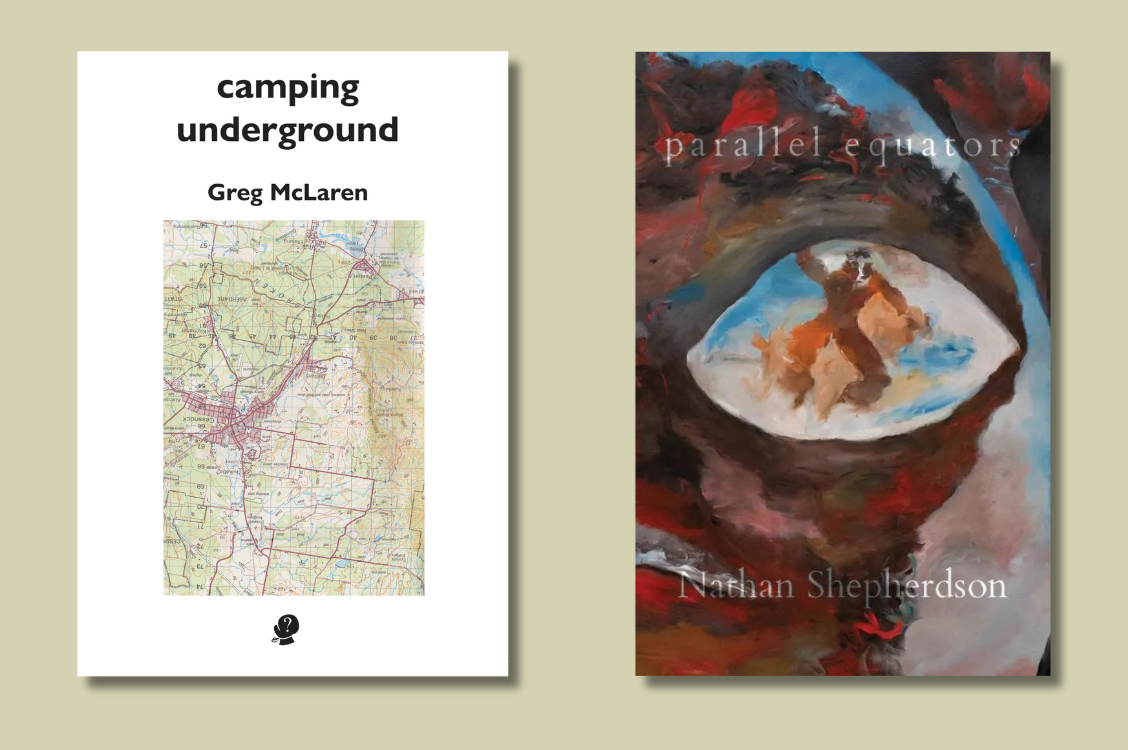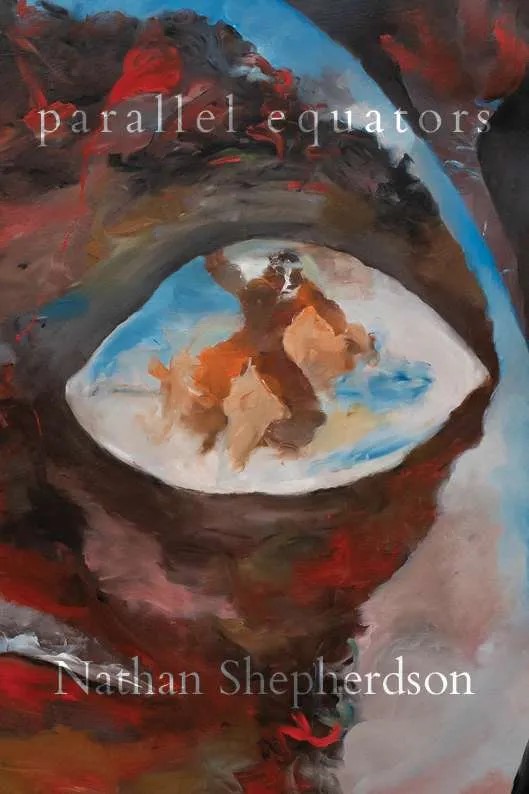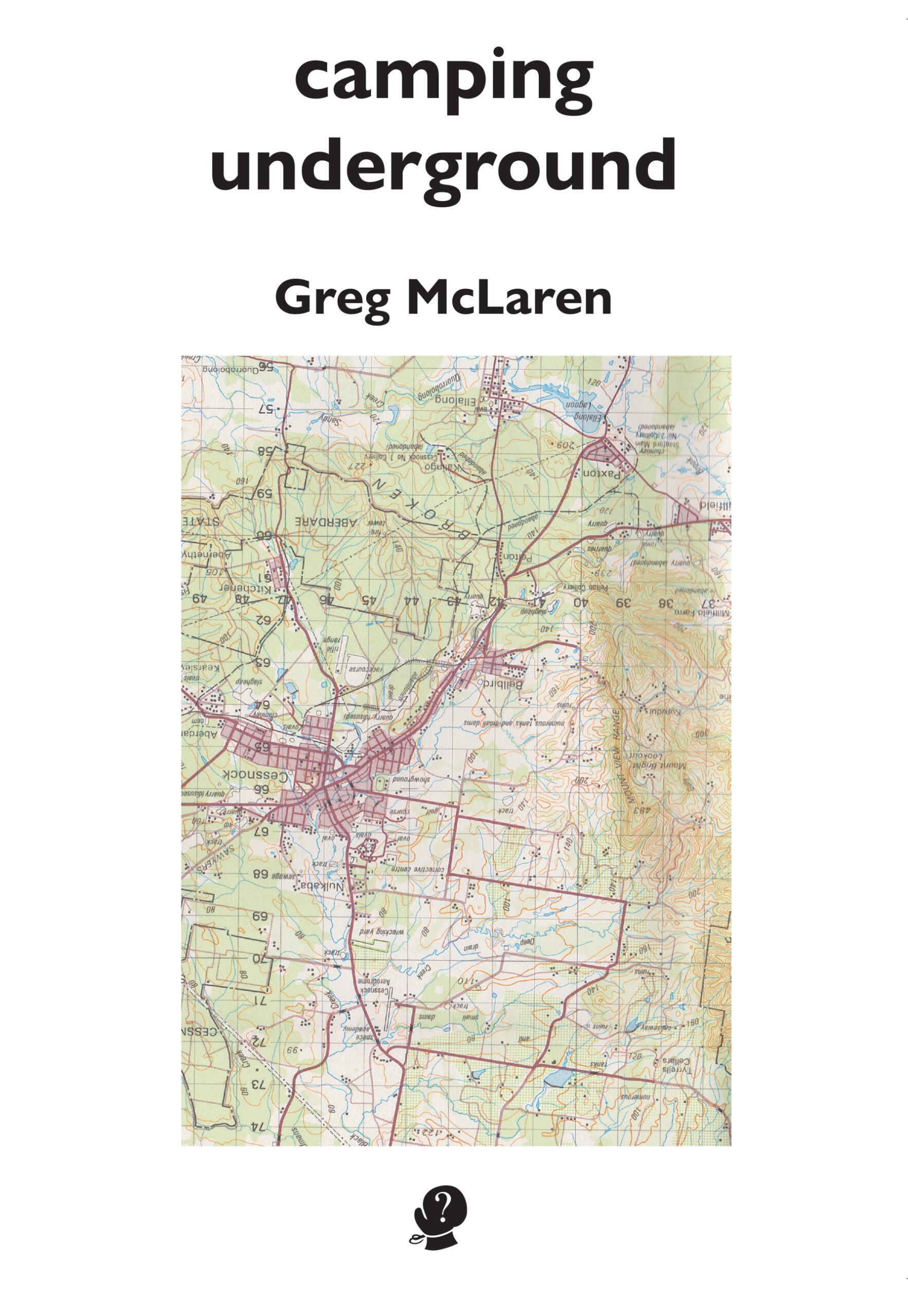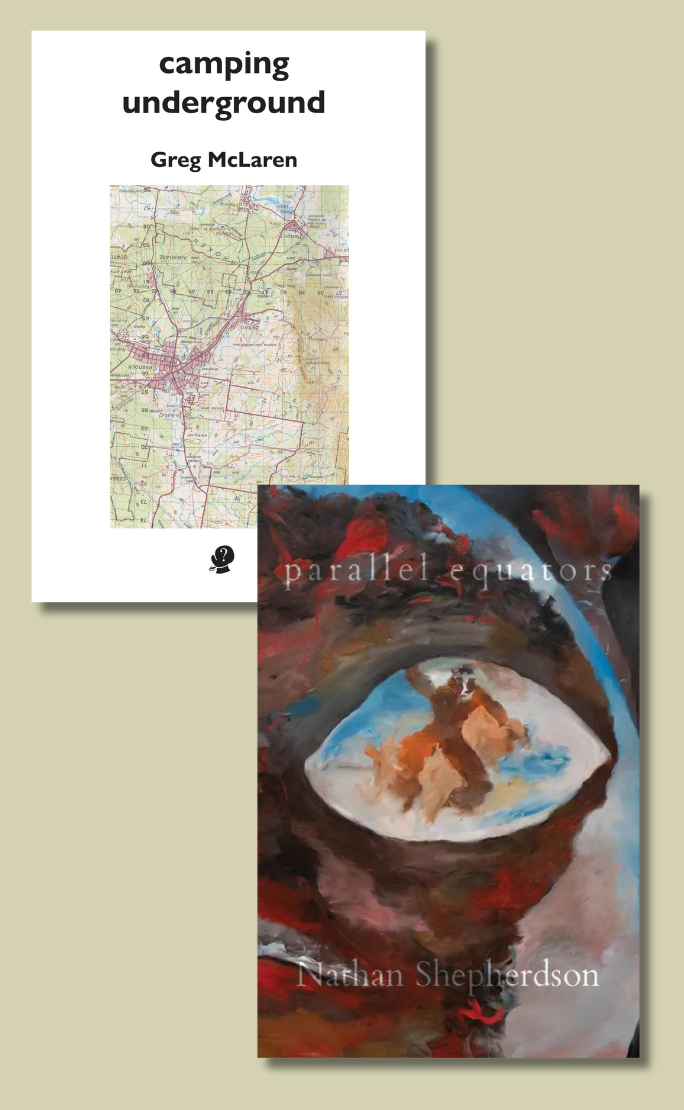
- Free Article: No
- Contents Category: Poetry
- Review Article: Yes
- Article Title: Strange communion
- Article Subtitle: Questions of poetic resistance
- Online Only: No
- Custom Highlight Text:
'Poems reawaken in us,’ writes James Longenbach, ‘the pleasure of the unintelligibility of the world.’ They do so via ‘mechanisms of self-resistance’: disjunctive strategies that work, for Longenbach, to ‘resist our intelligence almost successfully’. What ‘almost’ means here is, of course, a matter of taste – and style. Nonetheless, this Romantic mandate – that poems achieve clarity by integrating opacity – invites a question fundamental to poetics: how much resistance is too much, or not enough?
- Featured Image (400px * 250px):

- Alt Tag (Featured Image): Anders Villani reviews two new poetry collections
- Book 1 Title: parallel equators
- Book 1 Biblio: Recent Work Press, $19.95 pb, 186 pp
- Book 1 Cover Small (400 x 600):

- Book 1 Cover (800 x 1200):

- Book 2 Title: camping underground
- Book 2 Biblio: Puncher & Wattmann, $25 pb, 189 pp
- Book 2 Cover Small (400 x 600):

- Book 2 Cover (800 x 1200):

parallel equators is a long, disorienting work. Its five sections, named for the five vowels, carry surrealist subtitles: ‘we take our seats and wait for the cave to auction its echoes’. Whether Shepherdson’s structural design owes more to randomisation than deliberate sequencing feels irrelevant. What lends the collection global coherence is its formal consistency. Consider this tercet from ‘rain as narrative’: ‘in our private apocalypse / angels drain the lees / via a bung beneath the eyeball’. Unpunctuated; lowercase; lines of similar length broken at normative turns in the syntax, often ending in nouns; elaborate sonic patterning; dense, mixed, and inventive metaphors: such features inhere, with minimal exception, throughout the book. The result is a hypnotic, sure-voiced flatness, which allows Shepherdson to parse complex constructions that, in bolder arrangements, could resist interpretation altogether: ‘now they expect us / to have our corneas stacked / at either end of this sentence / to calmly patent our veins / as a new form of writing.’
In the collection, language, like art, belongs to the body – is itself a body. Returning to this insight forces Shepherdson into figurative acrobatics: ‘fermenting yeast from the mouth / of a dead pronoun’; ‘you simmer commas until they’re ready to eat’; ‘swimming with the verbs in your new language / you marinate the vowels in a rich brandy / to warm the blood in your handshake.’ Midway through ‘poems before i knew you now i know you’, the speaker approaches a lover from behind, lifts their hair from their neck in perhaps the book’s most literal image, and ‘put[s] my right hand / inside the marsupial pouch / at the back of your / head // to check that new words / are attached to lactating / thoughts’. Reviving language, renewing it, and thereby feeding the body – ‘recalibrat[ing] this thing / once thought to be a soul’ – pre-occupies Shepherdson, underpins his innovations in phrasing and trope and his jettisoning of narrative. What poet has not wished to ‘nurse words like tired babies / until they explode’?
Explode and become what? Hidden in the book’s bulk are lines that suggest a transcendent unity, which poetry might glance. In the ‘orbit’, the speaker tells an addressee who has died that ‘your body follows a small channel / in the giant fingerprint / on the water’s surface’. Elsewhere, we find aphoristic statements such as ‘this is the light / before light existed’; ‘even without one there is one’; and ‘all gates fly open in the act of being closed’. Against absence, against closure, something persists. Shepherdson won the 2005 Thomas Shapcott Poetry Prize for Sweeping the Light Back Into the Mirror (2006), an elegy for his mother. In the final poem in parallel equators, dedicated to his father, he writes: ‘when i am again one atom / he will again be the one / to split me as a private sun / unskilled in every blindness.’
From Luke Best’s Cadaver Dog to Joan Fleming’s Song of Less, in recent years numerous Australian poets have published dystopian verse novels. Greg McLaren’s camping underground sits well alongside these contemporaries. It surpasses them for its intricate storytelling and flights of lyricism.
It is the near future. Climate change and nuclear war have ravaged the world: ‘Kiribati became a reef.’ In Australia, far-right terror groups have unleashed attacks using ‘dirty bombs’ made from stolen radiology materials and, worse, biological weapons. A deadly virus – ‘its virulence – a spatter / of data, a kid’s picture // of what the stars / might look like’ – plagues the country, which has devolved into blackouts, quarantine zones, paramilitary groups, brutal killings, and armed resistance. In the old coal-mining regions around Newcastle in New South Wales, the narrator, Kel, battles hostiles, illness, and a dark history to search for her missing niece, whom she loves like a daughter.
McLaren’s premise has a grab-bag quality, which the author acknowledges in wry references to The Walking Dead, Game of Thrones, and The Hunger Games. Yet the world-building is sufficiently rich and rooted in current events to remain compelling. And chilling: ‘Exactly when did asking Christian / religious leaders to address the radicalisation / and extremism in their communities // begin to sound like satire?’ The book’s chronology intersperses sections titled Before and After in irregular sequence. Sections range in length from a word – ‘Cholera’ – to several pages. Plot-driven stanzas abut atmospheric, reflective turns, or sardonic humour: ‘No more deadshits / dawdling on their phones – / that has to be a plus.’ As fragments accrete, Kel emerges as a flawed protagonist primed by a traumatic upbringing for both survival and aloneness. McLaren has written a believable queer, female voice and psyche.
In an age with few epics, verse novels must implicitly answer two questions. Why tell a story in poetry? By extension, can poetry tasked with narration retain the sonic and rhythmic attunement, and Longenbach’s ‘mechanisms of self-resistance’, which distinguish it? McLaren takes care never to forsake story for song, or vice versa. For example, Kel recounts her home life as a child: ‘But I never / especially liked drugs or the drinking / my sister did, my brother. I just / broke off into small portions and / let them slowly heal, or not.’ The diction is prosaic. Notice, however, the slant rhyme of ‘drugs or’, ‘brother’, and ‘broke off’; the consonance of ‘small’ and ‘heal’. Notice how, by enjambing the first line after ‘drinking’, McLaren attributes that vice to both Kel and her siblings. Notice the lovely metaphor woven into the syntax through the alliteration of ‘broke’ and ‘brother’. This is not prose chopped into lines. McLaren’s phrasing remains precise and original, from a cockatoo’s ‘grinning eye’ to the narrator’s bemoaning that ‘[i]t’s been / a long day / all morning’. Elsewhere, language grows more lyrical, slowing time, and inviting reflection: ‘your whole skin still – / an early morning river’; ‘Here in the half-shade, / the mellow light lanced / by the red-green of dangling gum tips’; ‘Voices dangle from the moving.’
It is possible to imagine reading camping underground and forget that it is verse. The book’s achievement is that it is also possible to imagine the opposite.



Comments powered by CComment